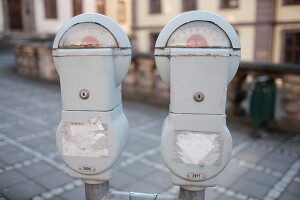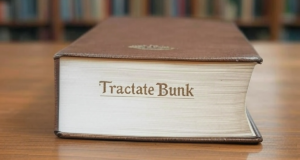Regular parking enforcement will continue as before.
 Jerusalem, December 12 – The municipal government of Israel’s capital has hit upon an innovative method to increase cash flow into its coffers: issue tickets to residents who do not own a motor vehicle but who inspectors have assessed are the type of people to disregard signs and markings demarcating where one may leave such a vehicle.
Jerusalem, December 12 – The municipal government of Israel’s capital has hit upon an innovative method to increase cash flow into its coffers: issue tickets to residents who do not own a motor vehicle but who inspectors have assessed are the type of people to disregard signs and markings demarcating where one may leave such a vehicle.
Jerusalem Comptroller Itzik Lari instructed the various bureaus under his administration to begin implementing a new policy whereby municipal enforcement personnel in various departments will have authority to issue parking fines not for actual violations, but for behavior that, in the personnel’s judgment, indicates a propensity for a parking violation regardless of whether the recipient of the penalty has a car to park. Regular parking enforcement will continue as before.
A spokesman for the municipality described the pilot project as a pioneering method for supplementing local tax revenues in a locale with a comparatively small percentage of residents with the economic means to pay the full annual property taxes, the principal source of funds for operations such as education, sanitation, road repair, social services, and public cultural events.
“Statistically speaking, Jerusalem is the poorest city in the country,” explained Yisrael Serenga, municipality’s chief of public relations. “That’s just in terms of raw numbers. We have the most poor people, partly because we simply have the most people, by a large margin – more than the combined populations of the two next-most-populous cities in Israel, Tel Aviv and Haifa. Some parts of Jerusalem generate impressive property tax revenue, but not nearly enough, and there’s only so much you can collect from people who have nothing. But we have ambitious development plans and tremendous current expenses far beyond what real revenues permit. Rather than rely on deficit spending, this new program, which we’re calling Park-Our, the new adventure in which, just walking around town, you might be handed a ticket that’s your ticket to supporting the future of the city, if the inspector who gave it to you thinks you look like the kind of person who would park too far away from the curb, or in a handicapped-only spot. Or at the wrong color curb. There are so many possibilities.”
Serenga proceeded to describe a Byzantine appeals system projected to put the futility and frustration of the current traffic court to shame, the purpose of which, he noted, will be to confront the “violator” with avenues so twisted, expensive, and pointless – not to mention insulting – that he or she will opt to simply pay the fine and be done with it.
Please support our work through Patreon.




